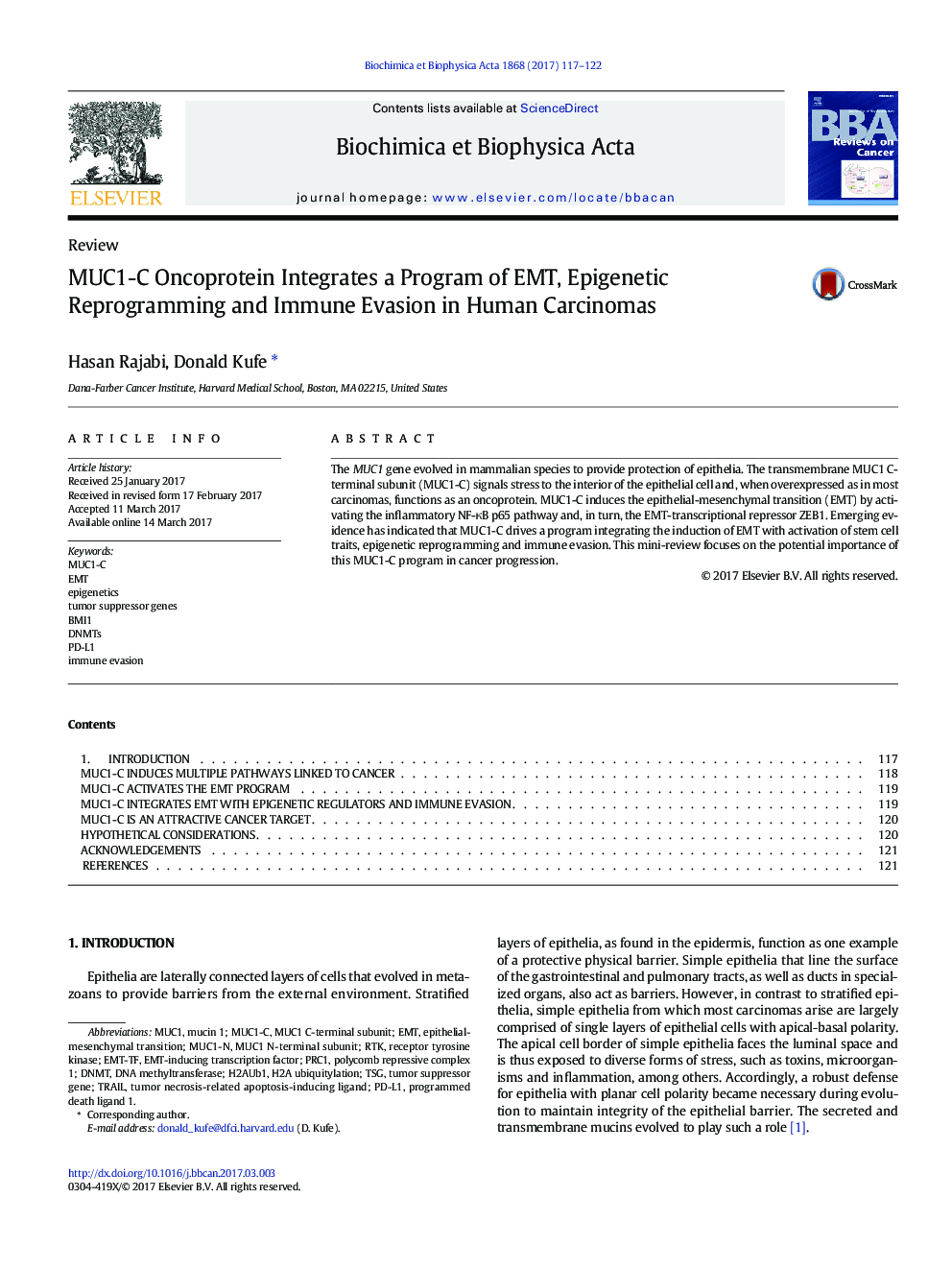| Article ID | Journal | Published Year | Pages | File Type |
|---|---|---|---|---|
| 5524002 | Biochimica et Biophysica Acta (BBA) - Reviews on Cancer | 2017 | 6 Pages |
Abstract
ABSTRACTThe MUC1 gene evolved in mammalian species to provide protection of epithelia. The transmembrane MUC1 C-terminal subunit (MUC1-C) signals stress to the interior of the epithelial cell and, when overexpressed as in most carcinomas, functions as an oncoprotein. MUC1-C induces the epithelial-mesenchymal transition (EMT) by activating the inflammatory NF-κB p65 pathway and, in turn, the EMT-transcriptional repressor ZEB1. Emerging evidence has indicated that MUC1-C drives a program integrating the induction of EMT with activation of stem cell traits, epigenetic reprogramming and immune evasion. This mini-review focuses on the potential importance of this MUC1-C program in cancer progression.
Keywords
Related Topics
Life Sciences
Biochemistry, Genetics and Molecular Biology
Cancer Research
Authors
Hasan Rajabi, Donald Kufe,
